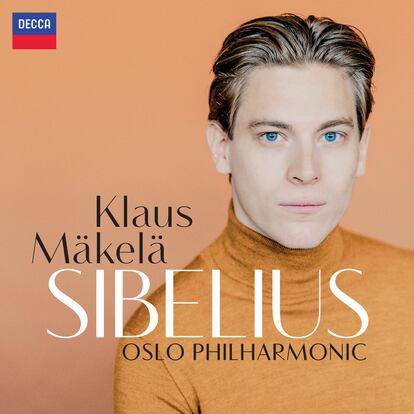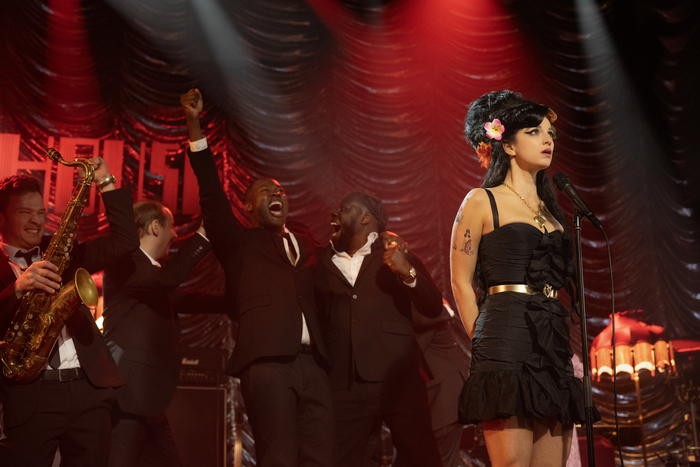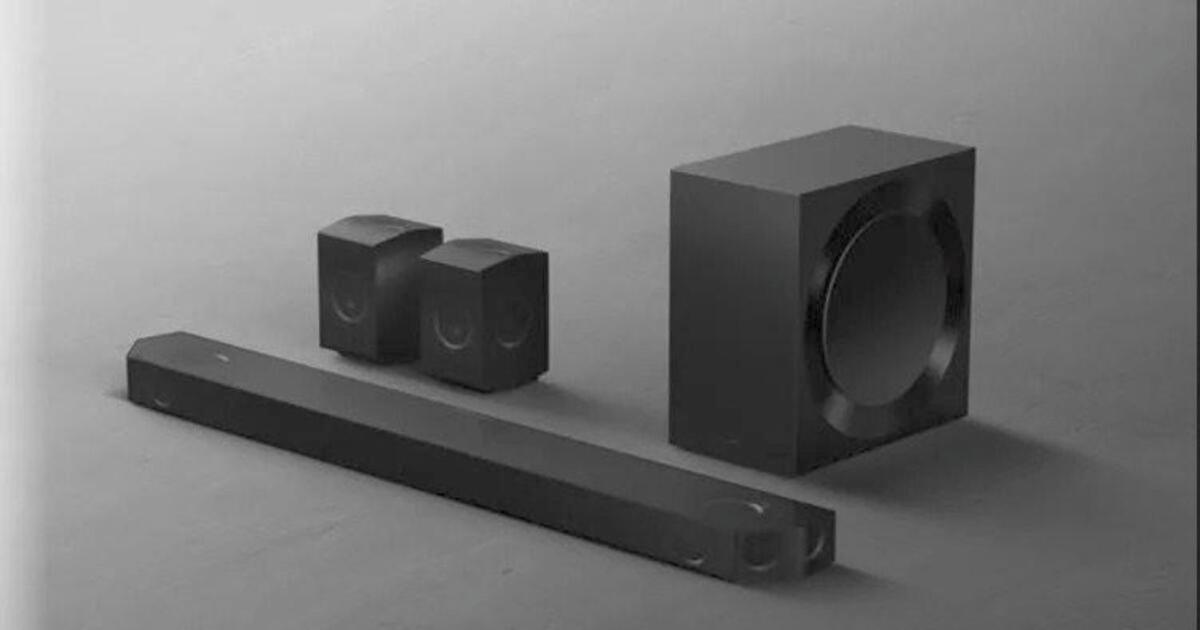Klaus Mäkelä conducts the Oslo Philharmonic at the Philharmonie de Paris on May 10.kaupo kikkas
Jean Sibelius managed to make the dream to which every great symphonist aspires come true: to compose a consistent and unitary corpus of works, all of them possessing different personalities and at the same time a perfect reflection of the author's own stylistic evolution.
That is,
mutatis mutandis
, what all the great cultivators of the genre had done before him, from Haydn to Brahms, from Mozart to Mahler, from Beethoven to Bruckner.
The Finnish composer did not reach the magical number nine that the author of Fidelio
inadvertently enthroned
, but got off the symphony train two stations earlier.
He began to compose, and perhaps even completed, an Eighth Symphony, but his long self-imposed silence of more than three decades continued stubbornly unbroken until his death in 1957. However, if we decided to include in the list the youthful
Kullervo Symphony
( 1892), which, in addition to the orchestra, requires two vocal soloists and a male choir for its performance, and we grant symphonic status to
Tapiola
(1926), his last great orchestral work and almost the natural corollary of his
Seventh Symphony
, Sibelius would have achieved emulate and place himself on the same threshold as Beethoven, Bruckner or Mahler.
Symbolically, the
First Symphony
, in its revised version,
it premiered on July 1, 1900 in Stockholm, at the start of a tour by the Helsinki Philharmonic Orchestra.
The Swedish capital would also be the city that would host the premiere of the
Seventh Symphony
, conducted this time by Sibelius himself on March 24, 1924. All the intermediate symphonies would be premiered in the Finnish capital under the composer's direction.
A quarter of a century is not a long time for a life that allowed Sibelius to be a nonagenarian, but it is if we discount the more than thirty years in which the musician almost completely gave up composing.
The imprint of his classical German training is unmistakable in his production, while his music was forged with an extremely personal language, highly influenced by the overwhelming presence of Finnish nature.
In his seven symphonies there are, however, no folkloric or mythological influences, so frequent in other parts of his catalog: it is pure, abstract, absolute music,
that managed to remain uncontaminated by the avant-garde and the waste of sensuality of the beginning of the century, which does not make it, far from it, conservative.
The
Fourth Symphony
, for example, written as “a protest against current compositions”, is decidedly advanced, in terms of form, orchestral writing and austerity: what seemed certain death, as a result of a malignant tumor in the throat, blackened perhaps Sibelius's darkest and most cryptic score.
And how it is conducted, especially in the first and third movements, by Klaus Mäkelä, who must have grown up listening to these symphonies, and even playing them in his years as a professional cellist.
But now it is he who has taken over from several glorious generations of Finnish directors, from Robert Kajanus to Susanna Mälkki, from Paavo Berglund to Esa-Pekka Salonen, from Leif Segerstam to Mikko Franck, from Jorma Panula (the teacher of many of them ) to John Storgårds, from Ulf Söderblom to Tarmo Peltokoski, the latest wonder to emerge from the cold.
Is there any country in the world that has produced so many great directors per thousand inhabitants?
Hardly.
Mäkelä, however, is on the way to building a more global career than any of them, because there is no great orchestra that does not yearn to have him on its podium,
and not for signing up to what some may consider a passing fashion or for having allowed himself to be cajoled by dimes and diretes: the young director conquers the instrumentalists in the intimacy of rehearsals, rather than under the spotlight during concerts, and they are the ones who they fall for their talent, not their bosses.
Last summer, the City of Granada Orchestra asked to have an additional rehearsal with him, a gesture that is not at all usual in groups of hyper-regulated activity and little given to generosity.
For the time being, the Oslo Philharmonic and the Paris Orchestra have appointed him as its principal conductor, but an increasingly close relationship with the Royal Concertgebouw Orchestra (just look at its calendar to verify it) allows us to predict a future appointment at the head of the great dutch Training,
headless since the run over of Daniele Gatti.
Mäkelä has just made his debut with the Chicago Symphony and next season the Berlin Philharmonic awaits him: there is no mountain that does not want him as a climber on its summit.
More information
Klaus Mäkelä, the most desired baton
At this point in his career, the amazing maturity of the Finn, who turned 26 last January, is almost taken for granted.
He has not been afraid to face the best-known music of the great cultural totem of his country, nor does it seem that he is afraid of being compared with the best performers of his symphonic cycle, among which the aforementioned Paavo Berglund, John Barbirolli and Colin Davis (in Great Britain has always paid homage to Sibelius) or, of course, Leonard Bernstein, a New England native who seemed to have a direct connection with the Finnish musician.
Next to them, not far from them, is now Klaus Mäkelä, a sorcerer's apprentice who was to have recorded these works while conducting them, in chronological order, in concert in Oslo between the fall of 2020 and the spring of 2021,
but that in the end he had to rehearse and record them, without an audience and with his musicians duly distanced from each other, during the central waves of the pandemic.
According to what is heard on these albums, those confinements of orchestra and conductor with a single toy had to be of a very high emotional and conceptual voltage.
Smiles and gestures of complicity between Klaus Mäkelä and the musicians of the Oslo Philharmonic. Marco Borggreve
Mäkelä does not imitate anyone, and it could even be said that he does not remember anyone either.
He has his own ideas and a very clear concept of how symphonic Sibelius should sound.
The woodwinds and the serious string —both essential in the orchestral writing of his compatriot— are always covered with the density and necessary sound presence.
The post-romantic heritage appears filtered by a constant desire for organicity and expressive containment, the silences —also crucial in this music— have the necessary eloquence and the tempo is infinitely smooth and flexible, although at times those joyous outbursts of freedom are missed by Barbirolli that continue to surprise us and move us in our seats even after the umpteenth listen.
But if Mäkelä, at his age, is already capable of directing these works as he does here,
It is hard to imagine to what heights he will manage to rise after twenty or thirty years of experience (orchestral conducting is a long-distance career) and the lessons that regular work with the great orchestras offers: the Oslo centennial is one of them.
The public was imperatively absent from these recordings, since they will finally be able to listen to these works live, in what is going to be the first international tour of the director and his Norwegian orchestra, starting next week at the Vienna Konzerthaus (where Pablo L. Rodríguez will be there to tell the story to the readers of EL PAÍS) and the Hamburg Elbphilharmonie.
Klaus Mäkelä will surely leave many – and Sibelius himself were he alive – speechless.
SIBELIUS:
Symphonies Nos.
1-7
.
Tapiola.
Three fragments of last time.
Oslo Philharmonic.
Dir.: Klaus Mäkelä.
Decca, 4 CDs.
You can follow BABELIA on
and
, or sign up here to receive
our weekly newsletter
.
Exclusive content for subscribers
read without limits
subscribe
I'm already a subscriber


/cloudfront-eu-central-1.images.arcpublishing.com/prisa/XWGQ7OKMRBDIZHWIQPOHFW54FM.jpg)







/cloudfront-eu-central-1.images.arcpublishing.com/prisa/KMEYMJKESBAZBE4MRBAM4TGHIQ.jpg)


/cloudfront-eu-central-1.images.arcpublishing.com/prisa/EXJQILQR5QI7OMVRTERD7AEZAU.jpg)
